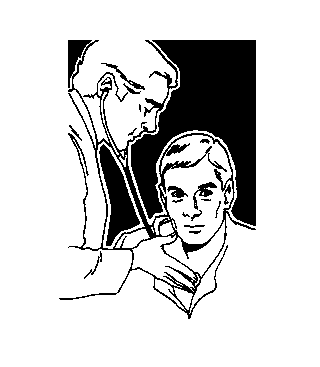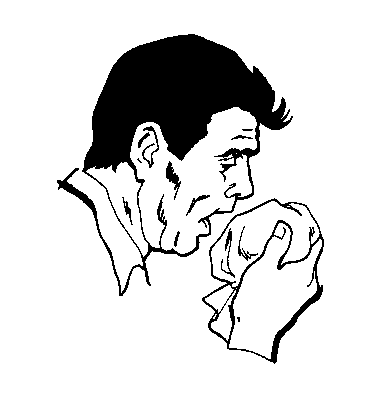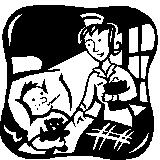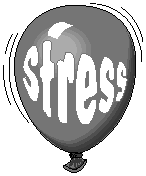Stress Knowledge Test
![]()
Stress Knowledge Test
![]()
How much do your really know about stress, its effects, and ways to effectively deal with it? Most people have an idea about what may or may not be stressful situations in their lives, but are you aware of the short term and long term effects of stress on your well-being and health? And more importantly, do you know what are effective ways for dealing with stress once it occurs?
The following interactive questions will help you understand more about stress and how it may affect you. The answers are based on current research on stress and health. For each question, simply click on the letter selection that you think is correct and you will discover whether or not you are right and why. Keep trying until you find the right answers and you will hopefully learn more about how stress can affect you.
Questions 1. When you experience stress, a series of physiological events are set in motion as your "fight or flight" response is activated. These reactions are "hard-wired" and occur without conscious decision as your body prepares to mobilize its resources to deal with the stressor. Some of these reactions include increases in heart rate, blood pressure, sweating, respiration, and mental activity.
Which of these stress reactions does research suggest is most harmful to your health if it occurs frequently?
a) increased respiration
b) increased cardiovascular activity
c) increased perspiration
2. Research on the links between stress and health suggests that stress does indeed impact on health and well-being. Stressful life events are known to be potentially harmful for health and may weaken your resistance to certain viruses and bugs. However, research suggests that the type of life event also needs to be considered.
According to research by Stone et al. (1992) those who where exposed to a flu/cold virus and experienced more life events were more likely to come down with a flu/cold than those who experienced fewer life events in the past year. Which type of stressor is more likely to make you susceptible to getting a cold/flu once you are exposed to the virus?
a) a positive life event (e.g. getting a promotion at work)
b) a negative life event (e.g. getting fired from work)
c) either a) or b)
3. Continuing with our theme of life events and stress, this next question addresses the duration and severity of the stressor and its possible effects. Which of the following types of stressful life events do you think will be more likely to make you more vulnerable to catching a flu/cold bug once you are exposed?
a) an acute, one time stressor (e.g. getting into a car accident)
b) a chronic, ongoing stressor (e.g. continuous hassles with your neighbor)
c) either a) or b)
4. So now that you are aware of some of the potential impact that stress can have on you, what can you do to help offset its negative effects? Which of the following do you think will help buffer the effects of stress?
a) having a friend to talk to about your stress
b) getting a good night's sleep regularly
c) both a) and b)
AnswersPlease note that the order of the answers given below have been scrambled so that you will have to click on each of the selections above in order to discover the right answers for each question. Good Luck!
c) No, increased perspiration can cause social embarrassment at worst, but its not likely to lead to any health problems. Try again.

b) No, although you might intuitively think that a negative life event would make you more susceptible to catching a bug, there is a better answer - try again!
a) Sorry, while your breathing rate may increase when you are under stress, it is not likely to lead to negative health consequences in the long run. Try again.
b) Yes! Research suggests that the increases in cardiovascular reactivity are the most harmful aspect of prolonged or chronic stress. For example, individuals with the Type A personality behavior pattern tend to react stressfully more often to everyday situations. This habitual way of reacting means that their cardiovascular system is chronically activated leading to wear and tear on their heart and arteries, which can then make them more susceptible to heart problems. On to the next question! 
a) Your partly right - research suggests that having friends to help you out during stressful times (psychologists call this "social support") can buffer the effects of stress on your health. Furthermore, being able to disclose about troubling or worrying thoughts/events may also increase your resistance to bugs and viruses, whereas keeping things in may be harmful to your health. But there is a better answer - try again.

c) Yes - amazingly it didn't matter whether the life event was negative or positive, the quantity of life events was the most important factor that influenced susceptibility for getting a cold/flu. You can rate yourself on life event stress with this online test - although it was written in the 60's the updated version that follows covers some more modern stressful life events - click here to test yourself. On to the next question!
c) Oops! Unlike the last question, the answer to this one is not both a) and b). There is one right answer - go back and see if can figure it out.
b) Right! Research by Cohen & associates (1998) suggests that the duration of the stressor is a more important factor in predicting whether or not you will get a cold than simply the severity of the stressful event. That means that its the little hassles that continue, especially for more than a month, that are more likely to wear down your resistance to viruses than a major one time stressful event. Onwards! 
b) Almost - getting sufficient sleep is important in order to buffer the effects of stress - it helps your body's natural restorative processes work and balances the physiological activation that being under stress can create. But there is a better answer - try again.

a) No, a positive life event may be stressful, but it is not more likely to make you susceptible to catching a flu bug than ..... well try again!
a) No, although an acute severe stressor may seem more stressful than just a hassle with your neighbor, this is not the right answer - try again.

c) Yes - this is the best answer - not only do you need to feel supported when you are dealing with stress and have someone to discuss your problems with, but you also need to take the appropriate physical steps necessary in order to help your body return to a more calm, less reactive state. Getting proper sleep (or any other type of physical relaxation for that matter) in conjunction with social support is the best way to deal with stress and offset its negative effects. Well done! Back to the main Stress links page.
(return to top)
HP sites | Professional Journals | Online HP Articles | Health Links | Stress Related Links Women's Health | Alternative Medicine Links | General Psychology Links | Home
Stress Knowledge Self Test, Fuschia M. Sirois, (C) 2001

This page is designed and maintained
by Fuschia. M. Sirois, Ph.D., B.Sc.
Department of Psychology, University
of Windsor

Last update was September 16, 2003
![]()